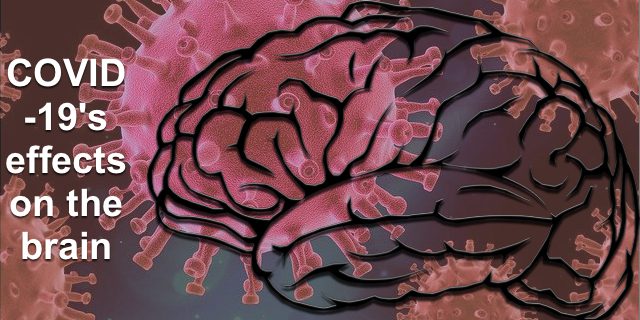Brain fog, hemorrhaging in the brain or in the space between the brain and skull (subarachnoid space), changes in cognition, personality and behavior: these are some of the alterations that patients who have had COVID-19 experience.
One of the changes has been onset of psychosis in people who had never had any history of mental illness. A New York Times article from December describes this response is even occurring in people who didn’t have a severe respiratory course of COVID-19 infection.
The literature contains case studies of patients world-wide with this condition. In Spain, one physician wrote of a patient,
“with megalomaniac beliefs of “communicating directly with God”, and persecutory delusions with medical and police staff. He was expansive and anxious with a high level of self-perceived energy. Visual and auditory hallucinations were recognized by the patient as well as eight-day global insomnia.”[1]
Physicians from a hospital in New Rochelle, New York provided evidence of three patients with sudden onset psychosis.
“Mr. A, a 30-year-old male, was brought to ED by his wife with bizarre behavior for several days, including extreme anxiety, suicidal ideation, agitation, suspiciousness, auditory hallucinations of people who were chasing him, decreased sleep, and drinking excessive amounts of water and Pedialyte (Abbott Laboratories, Chicago, IL) for reasons he could not articulate. On examination, he was guarded, internally preoccupied, called himself by an incorrect name, and thought he was being followed. When left alone momentarily, he fled and hid in a cabinet in the ED.”[2]
Mr. A had no history of mental health problems but his family members had tested positive for COVID-19. In the hospital he too tested positive for COVID-19.
Hypotheses for the cause of this sudden onset psychosis include actual infection of the brain (COVID-19 has been found in some patients’ CNS fluids), impact on the blood and blood vessels, and injury caused by the immune system.
Although this condition is considered rare, COVID-19’s effect on the brain is yet another reason for vigilance in preventing exposure to the virus.
Feature Image: Image by Gordon Johnson from Pixabay from Pixabay and Image by PIRO4D from Pixabay
References
- Correa-Palacio, A. F., Hernandez-Huerta, D., Gómez-Arnau, J., Loeck, C., & Caballero, I. (2020). Affective psychosis after COVID-19 infection in a previously healthy patient: a case report. Psychiatry research, 290, 113115. https://doi.org/10.1016/j.psychres.2020.113115
- Ferrando, S. J., Klepacz, L., Lynch, S., Tavakkoli, M., Dornbush, R., Baharani, R., Smolin, Y., & Bartell, A. (2020). COVID-19 Psychosis: A Potential New Neuropsychiatric Condition Triggered by Novel Coronavirus Infection and the Inflammatory Response?. Psychosomatics, 61(5), 551–555. https://doi.org/10.1016/j.psym.2020.05.012






